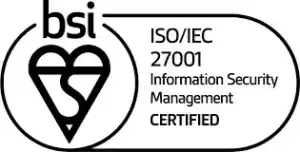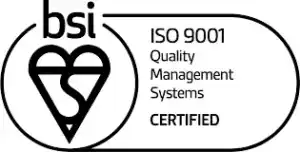Specialty Services
Orthopedic billing is a complex process involving specialized coding, frequent claim denials, and ever-changing regulatory compliance. Managing these challenges requires expertise and precision to ensure timely reimbursements and maximize revenue. ProMantra provides comprehensive orthopedic billing services that focus on accurate coding, efficient claims submission, proactive denial management, and strict compliance, helping your practice reduce errors and improve financial results.




Our denial management team focuses on resolving claim rejections caused by coding errors, medical necessity, and documentation issues. These efforts help maximize revenue by improving claim acceptance and maintaining compliance with CMS and payer regulations
99%
90%
25%
100%
We manage EDI claim submissions, eligibility checks, and payer-specific rules to reduce denials. Our team handles appeals, follow-ups, and compliance audits aligned with CMS and NCCI guidelines
Our team customizes billing workflows based on your practice’s procedural mix, payer contracts, and patient demographics. We leverage detailed payer policy analysis, timely claim status monitoring, and proactive denial trend identification to optimize revenue cycle efficiency. Integrated with leading EHR and practice management platforms, our dedicated support team provides ongoing education on regulatory updates and best practices
Extensive experience in managing CPT, ICD-10, and HCPCS coding for subspecialties like sports medicine, trauma, and pediatric orthopedics, ensuring accurate and compliant billing.
Design billing workflows tailored to your case mix, payer requirements, and reporting needs, including automated claim scrubbing and exception handling.
Implement denial analytics, payer contract performance reviews, and periodic revenue integrity audits to minimize write-offs and improve cash flow.
Seamless integration with EMR/EHR systems, advanced reporting dashboards, and a responsive client support team offering training and regulatory guidance.
ProMantra specializes in orthopedic billing with a focus on accurate musculoskeletal coding, modifier use, and documentation compliance. We audit claims to prevent denials from bundling errors or missing information, and our reports monitor denial rates, A/R days, and clean claim performance. Our experienced billing team ensures fast resolution, and we support practices of all sizes. Ongoing training on CMS, NCCI, and payer rules helps maintain compliance and reduce audit exposure
Our pre-submission audits identify coding mistakes, modifier errors, and bundling problems to reduce rejections.
We provide detailed reports on denials, days in A/R, and clean claims so you can monitor billing health.
Experts familiar with orthopedic codes and payer rules work directly with your staff for accuracy and quick issue resolution.
Our billing services adjust to the size and complexity of your practice, from solo practitioners to large orthopedic groups.
Ongoing education on CMS, NCCI, and payer policy changes ensures compliant, accurate billing.


Increased Collections
Recovered Revenue
New Avg
AR Days

ProMantra revolutionized our prior authorization process. Their expertise and automation tools significantly improved our approval rates and boosted revenue. We now focus on patient care without the hassle of administrative delays.

ProMantra has been a game-changer for our practice. Their proactive approach and expertise in denial management significantly reduced our claim denials and improved our bottom line. We highly recommend their services!


ProMantra’s medical coding services have streamlined our entire revenue cycle. Their precision and efficiency have significantly reduced our claim denials and boosted our revenue. Highly recommended
Orthopedic billing covers coding and claims for E/M services, diagnostic tests, non-surgical treatments, surgical procedures, pre- and post-operative care, and durable medical equipment.
These services streamline billing, reduce errors, enhance compliance, and ensure timely reimbursements, allowing practices to focus on patient care.
Common codes include 28420 for distal radius fracture repair and 27125 for total shoulder arthroplasty, covering fractures, joint replacements, and arthroscopic procedures.
Choose an EHR with orthopedic-specific features, seamless integration with billing software, and an intuitive interface to streamline documentation and billing.
Get precise billing and quicker payments with ProMantra. Spend time with patients, not paperwork.





